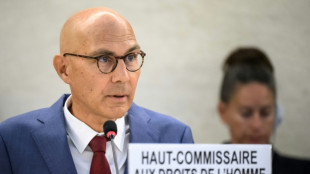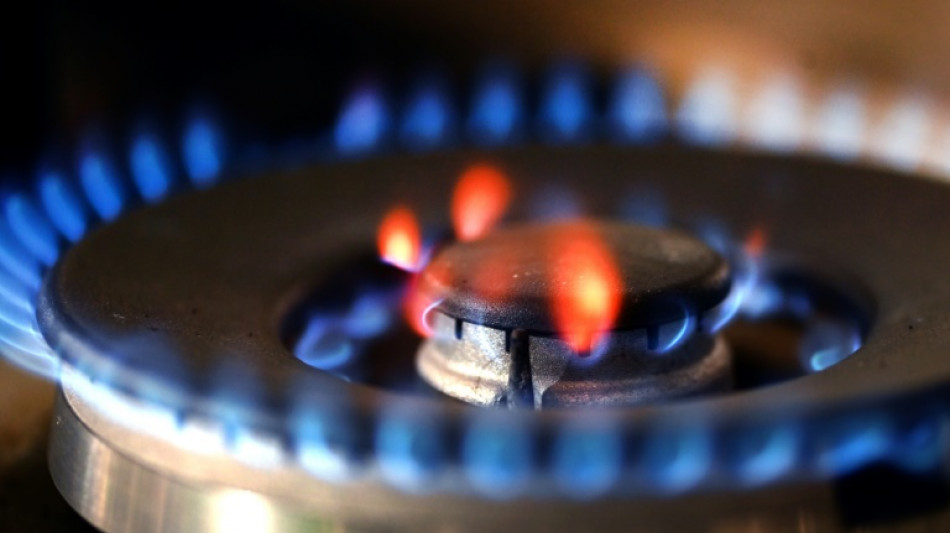
-
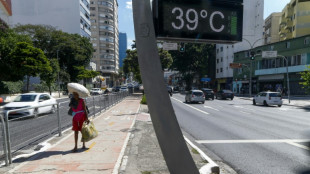 Brazil says 2024 was its hottest year on record
Brazil says 2024 was its hottest year on record
-
Soldier in Vegas Tesla blast suffered PTSD, no 'terror' link: FBI

-
 Lake Placid chosen as Olympic venue super sub if gamble on Cortina backfires
Lake Placid chosen as Olympic venue super sub if gamble on Cortina backfires
-
'Luke the Nuke' still living his teenage darts dream

-
 MLB Dodgers agree to terms with South Korean infielder Kim
MLB Dodgers agree to terms with South Korean infielder Kim
-
Bellingham grabs Real Madrid late Valencia win after Vinicius red

-
 US Olympian Kerley facing charges after clash with Miami Beach police
US Olympian Kerley facing charges after clash with Miami Beach police
-
Teenage sensation Littler storms to world darts title

-
 Judge to sentence Trump before inauguration in hush money case
Judge to sentence Trump before inauguration in hush money case
-
Microsoft expects to spend $80 bn on AI this fiscal year

-
 AC Milan rally past Juventus to meet Inter in Italian SuperCup final
AC Milan rally past Juventus to meet Inter in Italian SuperCup final
-
Trump-backed Republican Johnson elected speaker of US House

-
 Gaza rescuers say about 30 killed as truce talks resume
Gaza rescuers say about 30 killed as truce talks resume
-
UK, Germany electricity cleanest on record in 2024

-
 Oil from Russian tanker spill reaches Sevastopol
Oil from Russian tanker spill reaches Sevastopol
-
Man arrested for supplying drugs to Liam Payne: Argentine police

-
 US House rejects Trump-backed speaker in first ballot
US House rejects Trump-backed speaker in first ballot
-
European ministers urge inclusive transition on Syria visit

-
 Rickelton hits Test best as South Africa on top against Pakistan
Rickelton hits Test best as South Africa on top against Pakistan
-
Lebanon minister says working to 'resolve' Syria's new entry restrictions

-
 US announces $306 mn in new bird flu funding
US announces $306 mn in new bird flu funding
-
Salah targets Premier League glory in 'last year' at Liverpool

-
 Rockets fired from Gaza as Israeli strikes kill 16, rescuers say
Rockets fired from Gaza as Israeli strikes kill 16, rescuers say
-
Marseille coach De Zerbi defends 'strong' Ligue 1

-
 Rickelton, Bavuma tons put South Africa in strong position
Rickelton, Bavuma tons put South Africa in strong position
-
Breeding success: London zoo counts its animals one-by-one

-
 Fofana could miss rest of Chelsea's season
Fofana could miss rest of Chelsea's season
-
Republican speaker, Trump face test in Congress leadership fight

-
 Man Utd 'starving for leaders' ahead of Liverpool clash: Amorim
Man Utd 'starving for leaders' ahead of Liverpool clash: Amorim
-
Alcohol should have cancer warning label: US surgeon general
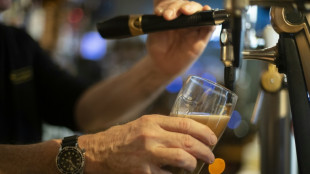
-
 Biden blocks US Steel sale to Japan's Nippon Steel
Biden blocks US Steel sale to Japan's Nippon Steel
-
Wall Street stocks bounce higher, Europe retreats

-
 Neil Young says he will play Glastonbury after all
Neil Young says he will play Glastonbury after all
-
Frenchman Castera plots roadmap for Dakar success

-
 Doha hosts PSG clash with Monaco in French Champions Trophy
Doha hosts PSG clash with Monaco in French Champions Trophy
-
Hamilton 'excited for year ahead' after Ferrari switch

-
 Man City must 'think' about De Bruyne future: Guardiola
Man City must 'think' about De Bruyne future: Guardiola
-
Biden blocks US-Japan steel deal

-
 French police to face trial for 'suffocating' death
French police to face trial for 'suffocating' death
-
British novelist David Lodge dies aged 89
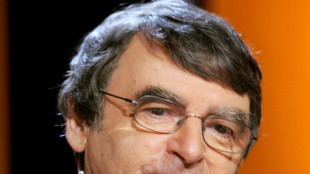
-
 Indonesia says 2024 was hottest year on record
Indonesia says 2024 was hottest year on record
-
South African Lategan wins Dakar Rally prologue

-
 Barca coach Flick optimistic but 'not happy' over Olmo situation
Barca coach Flick optimistic but 'not happy' over Olmo situation
-
Djokovic Australian Open preparations take hit with loss to Opelka

-
 Indian duo self-immolate in Bhopal waste protest
Indian duo self-immolate in Bhopal waste protest
-
Indian food delivery app rolls out ambulance service

-
 Arsenal must 'flip coin' in Premier League title race, says Arteta
Arsenal must 'flip coin' in Premier League title race, says Arteta
-
European stock markets retreat after positive start to year

-
 World food prices dip 2% in 2024: FAO
World food prices dip 2% in 2024: FAO
-
The horror of Saydnaya jail, symbol of Assad excesses


Asthma study sparks debate about safety of cooking with gas
New research that links cooking with natural gas to around 12 percent of childhood asthma cases has sparked debate about the health risks of kitchen stoves, as well as calls in the United States for stepped-up regulation.
The authors of the study said their findings suggested that around 650,000 US children would not have developed asthma if their homes had electric or induction stovetops, comparing the impact on health to that of second-hand smoke.
But an expert who was involved in the study questioned its findings and cautioned that gas remains far healthier than cooking with wood, charcoal and coal, which are estimated to cause 3.2 million deaths a year from household air pollution, overwhelmingly in developing countries.
The peer-reviewed US study was published last month in the International Journal of Environmental Research and Public Health.
It is based on a calculation of the risk of developing asthma in homes with a gas stove from a 2013 review of 41 previous studies.
Combining that calculation with US census data, it linked 12.7 percent of US childhood asthma cases to gas cooking.
The same calculation was previously used in 2018 research that attributed 12.3 percent of childhood asthma cases in Australia to gas stoves.
A report released Monday used the same calculation to link 12 percent of childhood asthma to gas cooking in the European Union.
The report, which has not been peer-reviewed, was released by the energy efficiency group CLASP and the European Public Health Alliance.
- N02 levels exceed limits -
The European report included computer simulations conducted by the Netherlands' research organisation TNO analysing exposure to air pollution in different European household kitchens.
The level of nitrogen dioxide was found to exceed EU and World Health Organization guidelines several times a week in all scenarios except for a large kitchen with a range hood that vented outside the home.
Nitrogen dioxide, which is emitted when gas is burned, is "a pollutant closely linked to asthma and other respiratory conditions," according to the WHO.
This year, CLASP will collect air quality measurements from 280 kitchens across Europe in a bid to confirm the results.
The research comes amid heightened scrutiny of gas stoves in the United States.
Richard Trumka Jr, a commissioner at the Consumer Product Safety Commission, tweeted on Monday that the agency "will consider all approaches to regulation".
"To be clear, CPSC isn't coming for anyone's gas stoves. Regulations apply to new products," he later added.
The American Gas Association, a lobby group, denounced the US study as an "advocacy-based mathematical exercise that doesn't add any new science".
Brady Seals, a manager at the Rocky Mountain Institute and co-author of the study, rebuffed the lobby group's statement.
"Of course it's just math," she told AFP. "But it gives us a number that we never had before."
- 'Not clean' -
Rob Jackson of Stanford University, who has previously published research showing that climate-warming methane can leak from gas stoves even when they are switched off, said the US paper was "supported by dozens of other studies concluding that breathing indoor pollution from gas can trigger asthma".
But researchers working to transition the three billion people still cooking with harmful solid fuels such as wood, coal and charcoal to cleaner sources expressed concern.
Daniel Pope, a professor of global public health at the UK's University of Liverpool, said that the link between asthma and pollution from gas stoves had yet to be definitively proven and that further research was needed.
Pope is part of a team conducting research commissioned by the WHO to summarise the effects different kinds of fuel for cooking and heating can have on health.
Pope told AFP that the results, which will be published later this year, indicate a "substantial reduction in risk" when people switched to gas from solid fuels and kerosene.
They found "negligible effects (mostly non-significant) of using gas compared to electricity for all health outcomes -- including asthma," he added.
Seals responded by saying that the study did not assume a causal relationship between asthma and gas cooking, but instead reported the association between exposure and the disease using studies dating back to the 1970s.
"I think it's a real problem that the international community is not explicitly recognising the very well known, very researched risk of gas stoves," Seals said.
"Gas is certainly better" than cooking with wood or coal, she said. "But it's not clean."
L.Harper--AMWN
